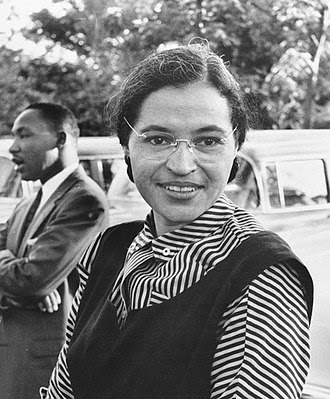(Photo by Wikipedia.com)
10 Fun Facts on W.E.B. Du Bois:
- William Edward Burghart Du Bois was born on February 23, 1868 in Great Barrington, Massachusetts.
- He held many titles throughout his life: American Civil Rights activist leader Pan-Africanist Educator Sociologist Writer Author Editor Poet Socialist Historian Scholar
- In 1905, he founded a Black Civil Rights organization called the Niagara Movement along with other activists.
- In 1909, he founded the National Association for the Advancement of Colored People (NAACP) while being active in many areas including being the founder of its magazine, The Crisis. Shortly after, he attended the First Universal Races Congress in London in 1911.
- Du Bois was an author of many pieces. He wrote two novels, “The Quest of the Silver Fleece” (1911) & “Dark Princess: A Romance” (1928); a book of poetry and essays, “Darkwater: Voices From Within the Veil” (1920); and two African American history pieces, “The Negro” (1915) and “The Gift of Black Folk: Negroes in the Making of America” (1924).
- He became Chairman of the Department of Sociology at Atlanta University between the years 1934 to 1944.
- Du Bois was a member of the American Association for the Advancement of Science and the National Institute of Arts and Letters.
- In 1948, he was CoChairman of the African Affairs.
- He ran for Senate in 1950 on the American Labor Party ticket in New York.
- At the age of 95, on August 27, 1963, he died in Africa after accepting to lead and manage the creation of the Encyclopedia Africana Project where he gained citizenship in Ghana due to inaccurate passport processing procedures.
Here is one of Du Bois's popular poems:
The Song of the Smoke
By W. E. B. Du Bois
I am the Smoke King
I am black!
I am swinging in the sky,
I am wringing worlds awry;
I am the thought of the throbbing mills,
I am the soul of the soul-toil kills,
Wraith of the ripple of trading rills;
Up I’m curling from the sod,
I am whirling home to God;
I am the Smoke King
I am black.
I am the Smoke King,
I am black!
I am wreathing broken hearts,
I am sheathing love’s light darts;
Inspiration of iron times
Wedding the toil of toiling climes,
Shedding the blood of bloodless crimes—
Lurid lowering ’mid the blue,
Torrid towering toward the true,
I am the Smoke King,
I am black.
I am the Smoke King,
I am black!
I am darkening with song,
I am hearkening to wrong!
I will be black as blackness can—
The blacker the mantle, the mightier the man!
For blackness was ancient ere whiteness began.
I am daubing God in night,
I am swabbing Hell in white:
I am the Smoke King
I am black.
I am the Smoke King
I am black!
I am cursing ruddy morn,
I am hearsing hearts unborn:
Souls unto me are as stars in a night,
I whiten my black men—I blacken my white!
What’s the hue of a hide to a man in his might?
Hail! great, gritty, grimy hands—
Sweet Christ, pity toiling lands!
I am the Smoke King
I am black.
Poem extracted from https://www.poetryoutloud.org/poem/the-song-of-the-smoke/.
W. E. B. Du Bois, “The Song of the Smoke” from Creative Writings by W. E. B Du Bois (KrausThomson Organization Limited, 1985). Reprinted with the permission of the Estate of W. E. B. Du Bois.
Source: Creative Writings by W. E. B. Du Bois (Kraus-Thomson Organization, 1985)
One of his powerful poems that stood out to me as he was having a discussion with a little girl:
A poem by the name of "Problematic" is available through the W.E.B. Du Bois Center from Twitter. They have a typewriter document image that shows the carefully thought out structure and his straightforward words in clever rhyme. Follow the link below to see it.
https://twitter.com/DuBoisUMass/status/1248974835511783425?s=20













